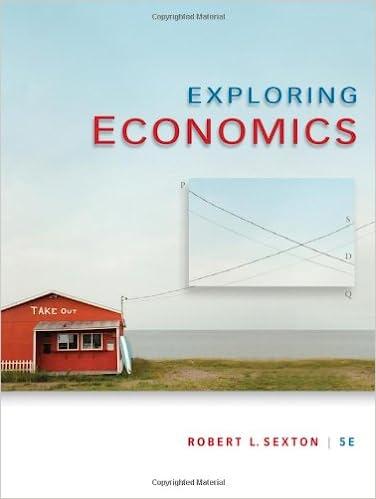Question
1. Marginal cost pricing means that a firm charges Group of answer choices A price that is marginally lower than the average total cost of
1.
Marginal cost pricing means that a firm charges
Group of answer choices
A price that is marginally lower than the average total cost of production.
Any price as long as average total cost is greater than marginal cost.
A price that is marginally higher than the average total cost of production
A price that is equal to the marginal cost of production.
2.
If the government wants a natural monopolist to achieve allocative efficiency, the government should
Group of answer choices
Ensure that the firm produces at full capacity.
Use price ceilings so the firm will earn a normal profit.
Regulate the firm so that it produces the output level at which economic profit is zero.
Subsidize the firm and require marginal cost pricing.
3.
An unregulated natural monopoly can lead to
Group of answer choices
Marginal cost pricing.
Loss of economies of scale.
Higher prices for consumers.
An optimal mix of output.
4.
If a natural monopoly is forced to set a price consistent with price efficiency, it will
Group of answer choices
Earn a profit on every unit of output produced.
Set price above marginal cost.
Incur a loss on every unit of output produced.
Set price equal to the ATC of production.
5.
The best way to address a natural monopoly without dismantling the economies of scale is
Group of answer choices
Laissez faire.
Antitrust.
Deregulation.
Regulation.
Step by Step Solution
3.39 Rating (152 Votes )
There are 3 Steps involved in it
Step: 1
The detailed answer for the above question is provided below Answers to the questions about natural ...
Get Instant Access to Expert-Tailored Solutions
See step-by-step solutions with expert insights and AI powered tools for academic success
Step: 2

Step: 3

Ace Your Homework with AI
Get the answers you need in no time with our AI-driven, step-by-step assistance
Get Started


